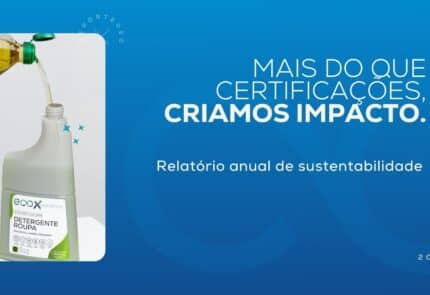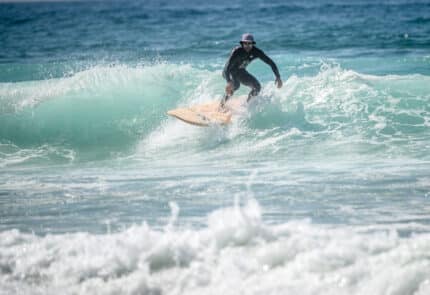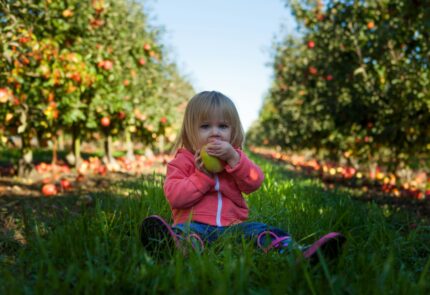Portugal’s Food Footprint: How Sustainable Are The Portuguese?

Is Portugal’s Food System Environmentally Sustainable?
The global food system is increasingly acknowledged as the single largest reason for the human transgression of key planetary limits.
Worldwide, agriculture, forestry, and other land use are responsible for 24% of the global emissions, mostly due to practices such as crop cultivation (fertilizers and pesticides), livestock management, and deforestation.
According to a recent study from Galli et al (2020), Portugal is characterized by high meat and fish consumption, noticeable food wastage, and high urbanization level.
The team behind the study demonstrated food consumption in Portugal is the single largest reason (≈30%) why the Portuguese trespass the carrying capacity of Earth ecosystems.
Let’s take a quick look at some of this study’s main conclusions.
The Global Food System: A Systemic Problem
Throughout the 20th century, food demand has been largely met thanks to staple crop yields providing plenty of wheat, maize, soybean, or rice.
But today’s agricultural practices put long-term food security at risk.
Soils are getting depleted. Biodiversity is being lost at a rate of 150-200 species of plants, insects, birds, or mammals a day. Entire ecosystems are at risk of collapse. To name a few.
As if the above wasn’t bad enough, around 11% of the global population today suffers from chronic undernourishment. And the other side of the spectrum, there were 2 billion overweight adults in 2016.
The unbalance in global dietary patterns is undeniable.
Bad Calories, Food Waste and the Role of Cities
John Elkington (who coined the term triple bottom line) shared an interesting view about this issue in this book The Green Swans. He said that today more people have access to more calories, but that unfortunately, these calories are of worse quality.
But we both know there’s a final piece in this story of how our food system is screwed: food waste.
Something only humans create since there is no such thing as waste in the natural world. According to Pauli Gunti’s book The Blue Economy, thanks to the Fungi Kingdom, mushrooms and other organisms recycle the nutrients of what we humans would call ‘leftovers’ back into the soil.
But back to our story: how does it end?
It ends with roughly one-third of the food produced in the world for human consumption going to waste.
Gali et. al. say the issue of food security and distribution isn’t just one where the tech industry comes to save the day by turning efficiency into full power mode.
Rather, they argue, it is extremely important to study cities – the hotspots of the world population and the place of where most food is consumed (79%) – and look for and implement solutions for some of the food system problems.
Such focus includes understanding the internal trade systems and how to improve urban links with national, regional, and local production. But what’s the case for Portugal?
Is Portugal a Sustainable Country? The Portuguese Food Footprint
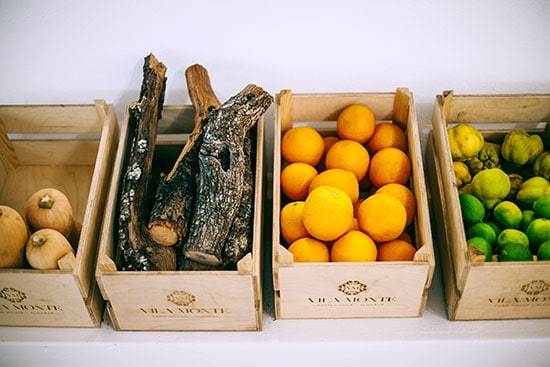
Portugal has high meat and fish consumption. In fact, the Portuguese have the highest per capita food footprint in the Mediterranean.
Moreover, the country’s high levels of food wastage – 1 million tons of food waste per year – and the fact that 62% of its population lives in coastal urban areas, made Portugal an interesting case study.
The municipalities of Almada, Bragança, Castelo Branco, Guimarães, Lagos and Vila Nova de Gaia – have recently joined forces in an innovative project of the Ecological Footprint of Portuguese Municipalities were selected as case studies as they made data access easier.
Besides checking the specific food footprints of the citizens living in these municipalities, researchers also applied a policy framework to assess local food system policies and to understand critical policy gaps needed to facilitate the transition to more sustainable pathways.
The results?
Despite a national resource availability – aka bio-capacity – of only 1.28 gha per capita, the average Portuguese demanded 3.69 global hectares worth of natural resources and ecological services – aka Ecological Footprint – to sustain their lifestyle and overall consumption patterns.
This means a consumption rate that’s nearly three times higher than what the country can support.
The Portuguese Food Footprint: A Risky Dependance On External Countries
The Footprint results reveal that the Portuguese food system is deeply interconnected with, and reliant upon, food systems around the world.
In fact, Portugal is highly dependant on the availability of food resources from Spain, France, Brazil and Norway to maintain stable access to food.
But the results also show that food consumption in Portugal tends to protein-based foods such as Meat, Fish, and Seafood as opposed to Fruit, Vegetables, Bread and Cereals – contributing to the country’s high food footprint.
Portugal’s great external resource dependency is worrying considering that many other European and Mediterranean countries are running ecological deficits and external resource dependencies too, within a global ecological overshoot setting in which the world’s ecological assets are being spent at a nearly 70% faster rate than they are regenerated, the study stresses.
The COVID19 outbreak raised awareness of the risks associated with food globalization. Together with the impact of climate disasters, some countries even experienced food shortages.
The need to build systemic resilience and bet on agroecological systems in Portugal becomes, therefore, increasingly clear and urgent.
The Gaps in the Portuguese Food System
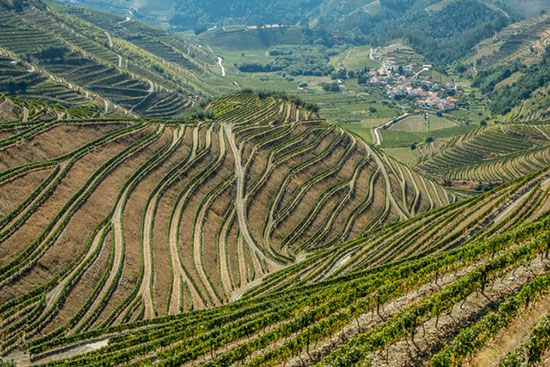
The researchers suggest investing in more robust datasets and assessment frameworks.
They recommend local institutions to work on their ability to fully implement their responsibilities regarding food production, transformation, distribution, consumption, and waste creation.
A local government gap in the sense that larger-scale approaches and multi-level co-operations are missing was also pointed out.
Strategic local policies could also be re-framed, the researchers suggest. This would include a greater focus on issues such as sustainable agriculture policies, food waste reduction, and the spectrum of circular activities around food.
In this way, shifting to more calories-fit diets or changing consumer food preferences could lead to a reduction in the ecological deficit of Portugal ranging from 10% (via calories reduction) to 19% (via major decreases in seafood and meat consumption).
All in one, shifting dietary choices away from animal proteins and towards the consumption of more cereals, legumes or vegetables requires the development of national dietary guidelines, and not only local actions.
Does Portugal Have Sustainable Food and Agriculture Systems?
Because of their proximity and close interaction with relevant economic and societal actors, small cities like the Portuguese ones analysed in the study need to play a key role in promoting resilient and prosperous food systems.
Facilitating collaboration at different scales and sectors is, therefore, highly important to guarantee stable supply and access to food over time for the Portuguese.
Ultimately, the Portuguese food footprint is driven by considerably high consumption of meat and seafood.
Together with the fact that a large share of the Portuguese food footprint is placed outside borders, it becomes important that governance structures and specific policy interventions at a national and local level go to the top of the country’s food management priorities.
Moreover, while food consumption should be a priority sector for intervention to shift unsustainable trends, the holes in urban food policies within Portugal undermine the country’s ability to take restorative action.
Therefore, facilitating a transition to sustainable national and local food systems in Portugal requires timely action, perhaps starting from those policies and initiatives that, without requiring major economic investments, would make the adoption of alternative dietary patterns and the strengthening of sustainable food governance possible.
[Image credits to Diogo Nunes, Orlova Maria and Photo by Karim Sakhibgareev on Unsplash]
